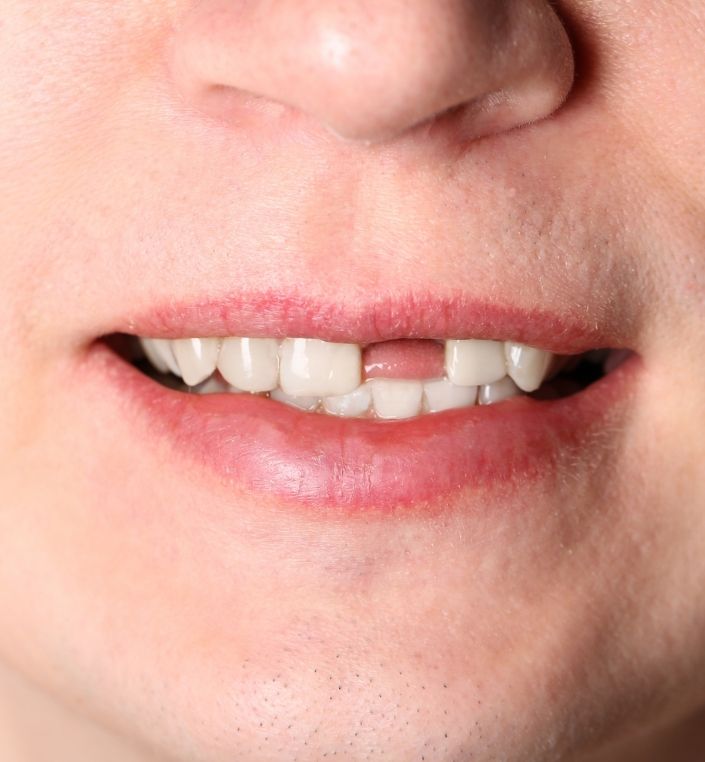
Treating a Knocked Out Tooth
Accidents are unavoidable, especially among children and active adults. Injuries while participating in sports are common. Unfortunately, the most common location of the damage is the face. Sports-related dental injuries can range from slight chipping to tooth loss.
A tooth can get knocked out when it is dislodged from the tooth socket. A strong blow to the tooth is typically enough to break it off. If no action is taken immediately, the tooth may be lost.
Another cause of having the tooth loosen or fall out can be advanced gum disease, also known as periodontal disease. This happens when the gums have been weakened by bacteria, which take hold due to poor dental hygiene. A loose tooth is a late indicator of this damage.
When a tooth is knocked out or avulsed, it is usually the result of an injury or accident. But, this does not always indicate that the tooth has been lost for good. The tooth can be preserved if immediate intervention is taken.
Subi Smilemakers provides various treatments for knocked-out teeth.
Consequences of a Knocked-Out Tooth
Trauma
Gum cells may remain on the root after a tooth is knocked out. As long as the cells are alive, the tooth can reattach after inserting back into the socket. However, the longer the tooth stays out of the socket, the more likely these cells will dry out and die. Trauma to the tooth can damage the inner dental pulp.
Missing Teeth
In the event of failure to find or save the knocked-out tooth, the dentist may consider using a fake tooth to replace the missing one.
Pain
Bacteria may get access to deeper tissues. Because of the injury, the tooth socket and tooth are more vulnerable to infection, which may cause intense pain if there is no emergency treatment.
Why You Should Choose Subi Smilemakers in Subiaco to Treat Your Knocked-Out Tooth
At Subi Smilemakers, we understand the importance of quick treatment.
We aim to preserve your natural teeth as much as possible. However, if the tooth is lost or cannot be reinserted into the gums, various dental treatments are available to ensure you avoid infections and other serious oral problems.
If you have a knocked-out tooth, call us today!
Frequently asked questions About Teeth Whitening
What to do when your tooth gets knocked out?
Immediate action is crucial when your tooth has been knocked out. You can do the following things along with contacting an emergency dentist:
- If possible, find the tooth, hold it by the crown or the smooth chewing surface and avoid holding the root (yellowish and pointy part).
- Use only water when cleaning the toothif it’s
- If possible, try to put the tooth back in the socket – this only applies to permanent teeth.
- You can place the tooth inside your mouth next to the cheeks, place it in fresh milk, or wrap it with cling wrap.
- Try to see a dentist within thirty minutes. Immediate action is crucial to determining if the natural tooth can be preserved or re-implanted.
What not to do when your tooth gets knocked out?
Understanding what to avoid when this happens is also crucial:
- If the tooth gets dirty, avoid using soap, tap water, or any chemical when cleaning it. Such materials may damage the tooth roots.
- Avoid touching the roots of the tooth – the yellowish, pointy part.
- Do not put the tooth back in the gums if it’s a baby tooth.
- Do not scrub or brush the tooth.
- Do not let it dry.
How to avoid knocking out a tooth?
Always wear a mouthguard while playing contact sports – such as hockey, AFL, rugby or soccer.
What to expect in a dental appointment for a knocked-out tooth?
Our dentist will quickly check the condition of the tooth and the socket.
If the tooth has been successfully re-implanted, you may not require further treatment as long as you maintain your regular dental check-ups. If a tooth becomes weak or loose, your tooth may need to be ‘splinted‘ to the adjacent teeth. This means it will be temporarily secured or attached to ensure a firm fit until the dentist can assess whether it has been successfully re-implanted.
If the tooth is lost or fails to re-implant correctly, it might be initially replaced with a denture. After the socket has healed completely, the dentist may recommend other restorations like a dental bridge or dental implant.

Ready To Schedule
An Appointment With Us?
We can't wait to help you feel confident about your smile.
Please contact us today!
